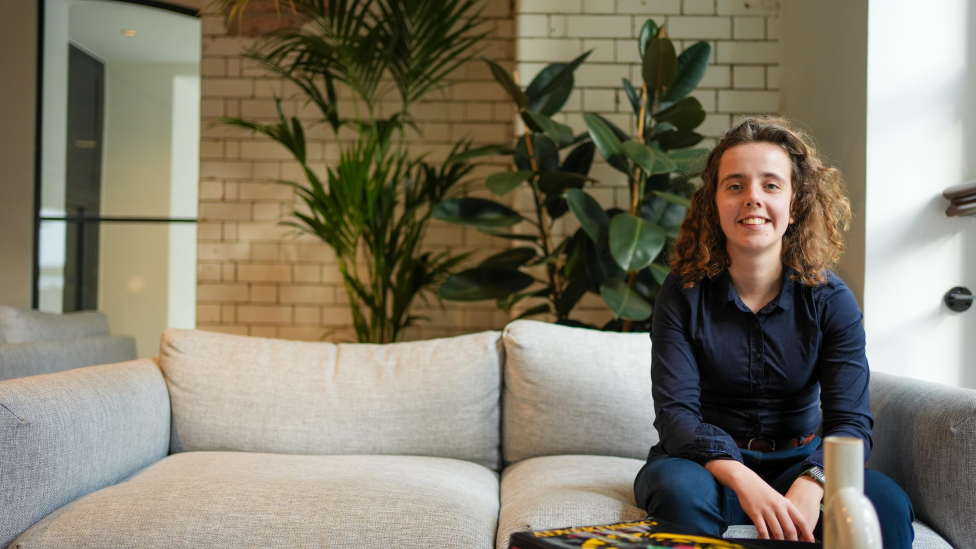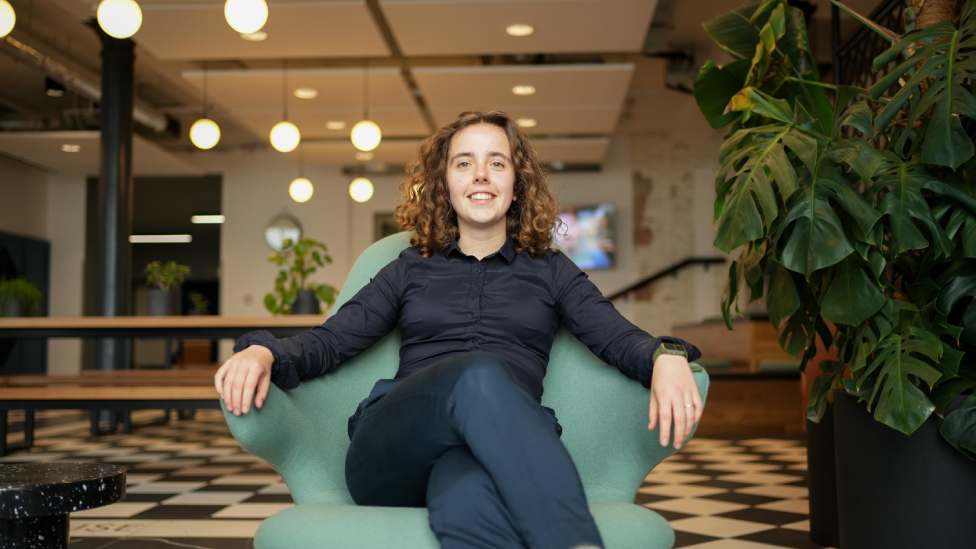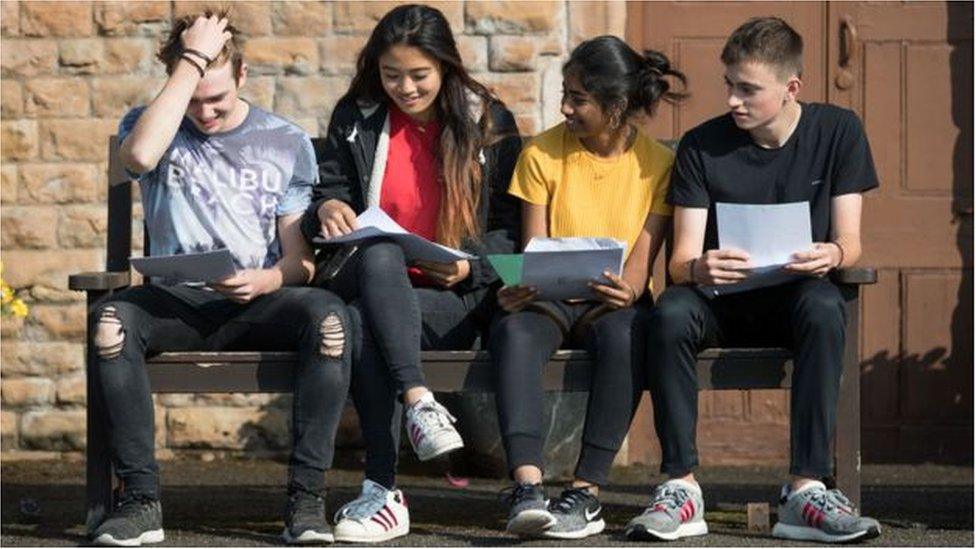Youngest accountant Grace, 20, says uni was not for her
- Published
Grace Bayton: "Don't just do something because that's what your friends are doing"
As a straight-A student in her GCSEs, with a host of private school scholarships on offer, Grace Bayton could have been forgiven for following her friends into sixth form, and then on to university.
But, four years on, the 20-year-old is instead sitting around boardroom tables talking numbers with CEOs.
She holds the distinction of being the world's youngest chartered management accountant, registered with industry body the Chartered Institute of Management Accountants.
Advice from family, teachers and friends mostly veered towards ticking off the boxes of formal education.
But that was, for Grace, never really an option, having decided early on that she needed to get going in the corporate world.

Grace Bayton decided not to do A-levels, despite being a top GCSE student
She said: "I think the experience of going to university is great for some people. You meet loads of new people and everything like that but, in all honesty, I was ready to work.
"When I said I was going to leave college and start an apprenticeship most people I spoke to were like, 'Why on earth are you going to do that? What if you don't like it?'."
It's a decision that, she admits, went against the grain.
"I think for a lot of young people it's a big thing to say 'All my friends are in college, they're doing this, and I'm going to go and do something completely different".
"Experience, I think, in the world of work in general, not just accountancy, is so valuable."
It's a decision that has paid off.
At 18, Grace, who's from Abertillery, Blaenau Gwent, bought her first home. Now, at 20, she is eyeing up her second, as well as fielding job offers from companies around the UK keen to have the profession's youngest star on their books.

Grace Bayton was sure she was ready for the world of work even though family and friends raised concerns
But it does all provoke some questions: how, and why, does a 16-year-old in school decide that accountancy is for her?
Key to the process of getting qualified so early was, according to Grace, the opportunity offered by an apprenticeship.
She became one on leaving college and it was through that system of on-the-job learning that she both got to grips with the skills needed and was able to pass her qualifications.
She is not alone. More than 4,000 apprenticeships were under way in Wales in 2022, according to Welsh government figures, with 61% of schemes started by females.
While many apprenticeships focus on vocational, skill-based careers, they are not limited to traditional trades and for many students they prove a valuable option in getting into work.
Then there is also the cost of continuing education at university to consider.
Tuition fees alone for undergraduate courses in the UK currently cost more than £9,000 a year, a figure which rises further when spiralling living costs are taken into account.
'No regrets'
A 2022 survey of more than 2,000 students by student finance group Save The Student estimates the average total cost of an undergraduate degree, for a British student, is more in the region of £65,000 when all expenses are taken into account, much of which is financed through student loans.
"I don't regret the path I've taken. I still went out with my friends, I still had a good time," she said.
"My advice to anyone who is 16, 17, 18 who doesn't know what they want to do is to look at all your options. Don't just do something because that's what your friends are doing or that's what your family think you should do.
"If you fancy this path or want to do an apprenticeship, or if you want to go and do a degree, do whatever makes you happy.
"Sometimes doing something different really pays off and I'm a good example of that."


Related topics
- Published19 August 2010
- Published21 March 2021

- Published14 October 2021
